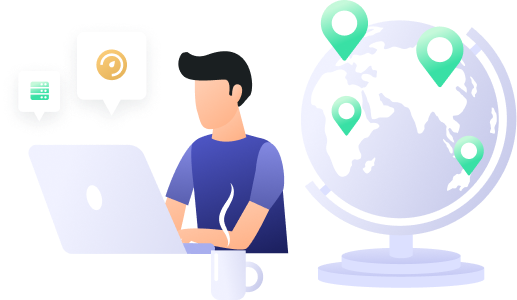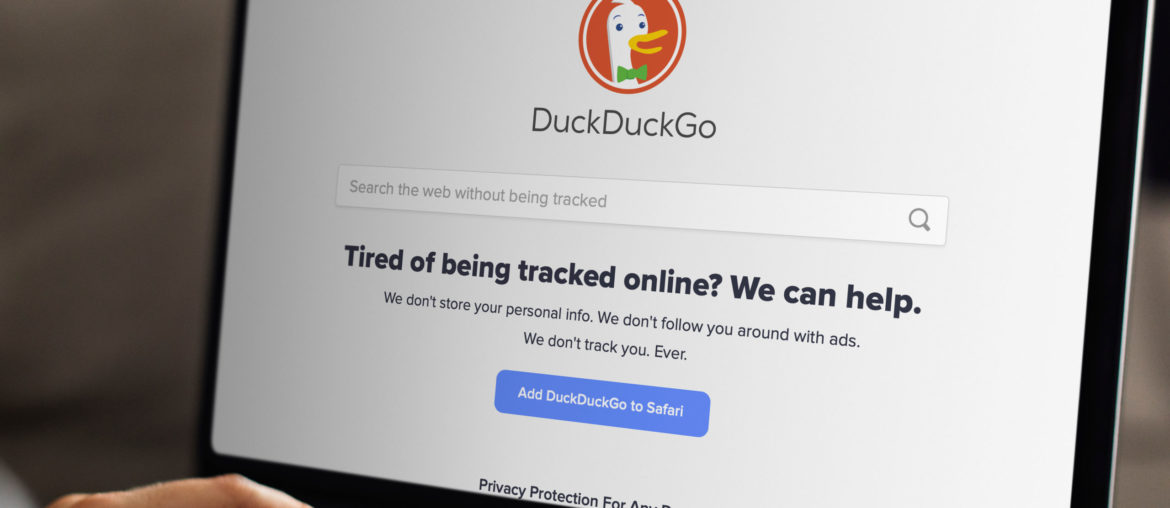Nothing on the Internet is free. If you don’t see the product that is being sold, the product is you. That being said, not everything has to cost the same, and that’s where you start to see private search engines like DuckDuckGo come in.
Unlike most search engines, a private search engine collects a lot less information about you when you use it. Many collect only the bare minimum in order to function. While several have been around since the mid-90s, there has been an explosion of interest since 2013 when the Edward Snowden saga happened.
Since then, there have been many different approaches to providing quality results while maintaining the privacy of users.
How Does DuckDuckGo Make Money?
While we’re using DDG as a shorthand for private search engines here, there are many out there and they all have a different approach to monetization. Yes, we said “monetization.” Please see the second sentence of this article. It’s up to you to balance your desire for privacy with your desire for production.
The Google Model
For the sake of this article, we’ll call the predominant online monetization method “The Google Model,” though it is hardly limited to them.
This system works by collecting as much information on you as possible. This includes your location, OS, time on various pages, search history, and so much more. Further, they provide additional services that can feed into that information-eating machine, like email or instant messaging. Even this article, written in Google Docs initially, is changing how they see me and my behaviors.
All of that information about you is then compiled and run through algorithms. Advertisers pay to show their ads to people who are likely to want their products. Because so much data is used, this can be frighteningly accurate. Have you ever talked about something, in person, and then started seeing ads for it online? Is your phone listening to your conversations or has your behavior coincidentally indicated you wanted that? Who knows?

The DuckDuckGo Model
There isn’t really a strict “DuckDuckGo Model” in the same way that many companies follow the Google playbook. However, there are three major ways that private search engines make money. Not all of them use all of these, but most use a combination of them.
- Targeted advertising – Just because they are private doesn’t mean they won’t try to sell you things. The difference is that private search engines like DuckDuckGo only target the ads based on the specific search query. So if I search for “giant Wiffle ball,” I will get ads for Wiffle balls the same way I would on Google. However, when I then search for “monster hamster,” the search engine won’t assume I’m using the giant Wiffle ball to train the monster hamster and serve me ads for human-sized hamster balls.
- Affiliate Revenue – This is similar to targeted advertising, but instead of the money coming from the serving of ads, it comes from purchases through ads. For example, DDG is an Amazon affiliate. When you click an Amazon link on a DDG search result and buy the item, a portion of the profits goes to DDG.
- Donations – The donation model, while not very reliable, is the least invasive. Several private search engines will accept donations and sponsorships. A sponsor may have their ads served, but they are not very specifically targeted. Donations usually come from people who believe in online privacy. Some sites even offer a paid subscription that will eliminate ads altogether for a recurring fee.

Some Private Search Engines
Here are a few private search engines. We haven’t ranked these and they are hardly the only options. This is just a good place to start. We tried to pick search engines that were in some way unique as well as being secure.
DuckDuckGo
Based in the US, this search engine is perhaps one of the most popular worldwide, with an average of 95.2 million daily searches as of the time of this writing. Part of how their system works involves a partnership with Yahoo to help with result filtering. Results tend to be fairly solid in our experience, though there’s one more thing to keep in mind. Because DDG is based in the US, it has to comply with often draconian information requests from the US government. That being said, DDG produces good results and is more private than Google or Bing.
Swisscows
Based in Switzerland (like us!), Swisscows is absolutely the most private search out there. They run their own servers, their data center is a bunker in the Swiss Alps, and they are outside US, UK, or EU jurisdiction. They don’t use cookies or collect any data outside of search total and language. For most searches, this is great. The drawback is that they also heavily restrict searches to keep them family-friendly and are very firm about not serving results with violence or pornography. But if you’re looking to search for something unrelated to those, this could be the search engine for you.
MetaGer
This one is really fascinating. A German non-profit called the (translated into English) Association for Free Access to Knowledge runs the site. They are an open-source search engine, meaning that the code is freely available for everybody. They have sites in English and German, excellent filtering, and the option to access results anonymously through a proxy. MetaGer even has a Dark Web site. They primarily scrape their results from Bing.
YaCy
This private search engine drew our attention because it’s not actually based anywhere. It operates on peer-to-peer protocols. As a user, you have to download their app to use it, but when you do, you have two options. Either you can use it to create a search of your local intranet, or you can choose to crawl websites and keep the data on your computer for other people to draw from. It’s not hyper-efficient nor reliable, but it is highly customizable, has great filtering capabilities, and gives you a look inside at how a search engine can work. YaCy even includes some amazing visualizations.

Do Your Research
Not every private search engine is necessarily that private. Tons of them are actually owned by corporations who can claim that they don’t keep particular information but actually do.
If your concern is privacy, any of the above sites will help to varying degrees. However, that doesn’t mean that you shouldn’t also maintain your security hygiene in other ways.
Of course, you should absolutely be using a virtual private network like PrivadoVPN, which can make your DuckDuckGo searches even safer. A solid ad blocker would also keep what are essentially tracking programs off your computer. Finally, use a private browser whenever you can, and don’t be afraid of breaking out Tor for .onion sites.
Whether you use DuckDuckGo, Swisscow, YaCy, MetaGer, or any of the other private search engines, you’re making your data more secure.
Download PrivadoVPN
Protect your privacy with a world-class VPN. Sign up for premium access to PrivadoVPN and get unlimited monthly data, access to 300+ servers from around the world, and up to 10 simultaneous connections. Get a top-rated VPN that can secure your privacy at home, at work, or on the go.
Sign up for PrivadoVPN today!




